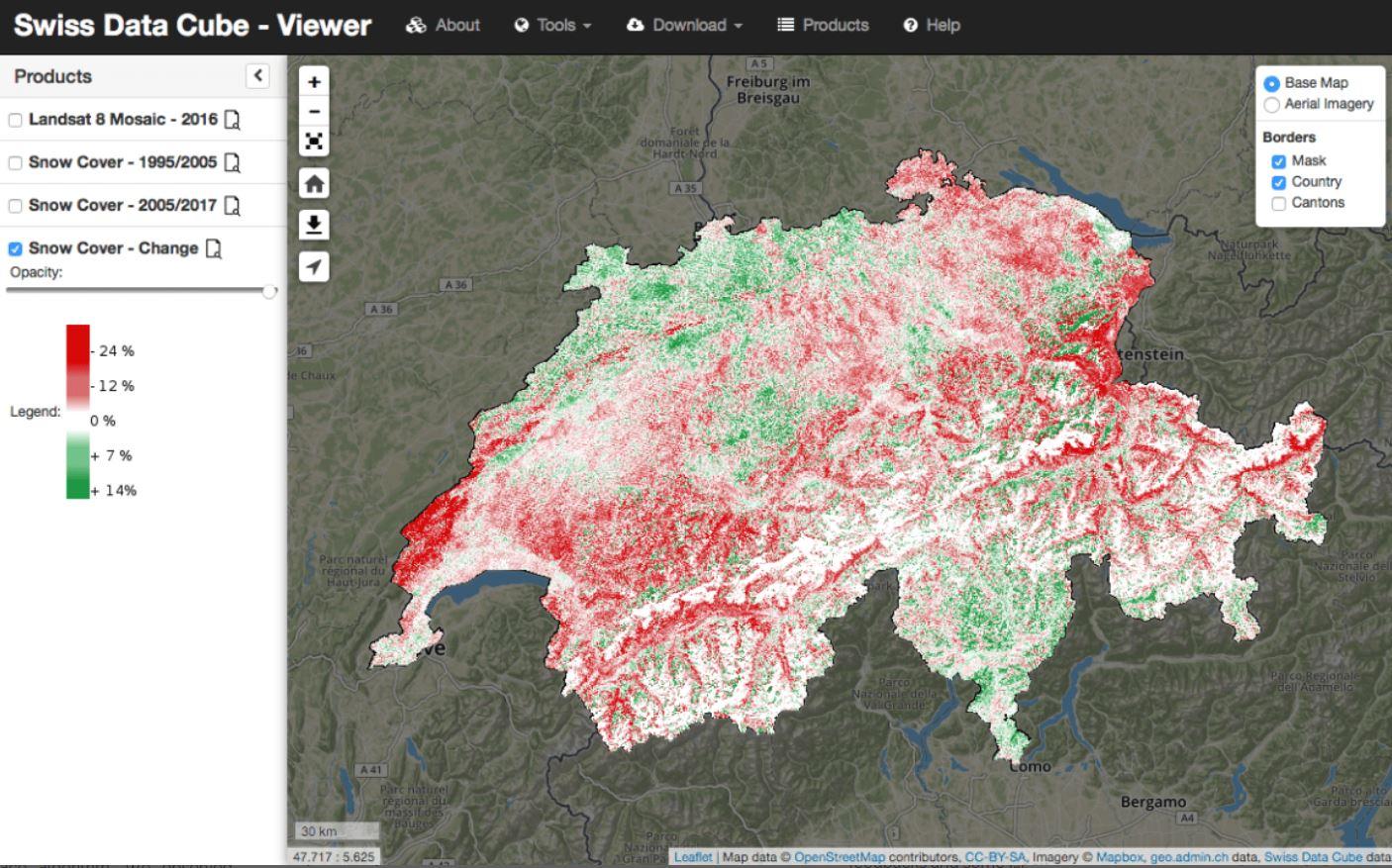
Switzerland is losing its snow – fast

In the past almost two-thirds of Swiss territory was covered by snow; now it is only about half, according to satellite data gathered over the past two decades.
Researchers at the University of Geneva (UNIGE)External link say that Swiss snow is disappearing – probably because of global warming. Between 1995 and 2005, areas with little or no snow (with 0-20% probability of snowfall), covered 36% of Switzerland. Between 2005 and 2017, the “little or no snow” territory amounted to 44% of the country.
Using the recently developed Swiss Data CubeExternal link, UNIGE researchers and GRID-GenevaExternal link, part of the United Nations’ Global Resource Information Database (GRID) network, analysed 22 years of satellite data covering all of Swiss territory.
They discovered that more-or-less snow-free Switzerland had grown by an area of 5,200 km2. And that the “eternal snow” zone – with its 80-100% probability of snowfall – had shrunk from 27% to 23% of the country. In other words, an area as large as canton Geneva (2,100 km2) is losing its eternal snow.
“Generally speaking, we also observe that the low snow conditions prevailing on the plateau are gradually gaining ground in the Jura and in the Alps, a phenomenon particularly evident in the Rhône Valley,” said UNIGE/GRID-Geneva researcher Grégory Giuliani in a press release on Wednesday.
Powerful new tool
The freely accessible Swiss Data Cube will soon be enhanced with additional data as part of joint effort by UNIGE and the University of Zurich.
“The snowcover.ch project will use data from the European satellite Sentinel-1, a radar satellite that will also measure the amount of melting snow, allowing for a more comprehensive view of the snow cover evolution over time,” according to UNIGE, which notes that the Swiss Data Cube also makes it possible to study vegetation, crop rotation, urban development and water quality.
“We have stored the equivalent of 6,500 images covering 34 years, a feat that only an open data policy has made possible. If we had to acquire these images at market value, more than six million Swiss francs ($6.2 million) would have been invested”, says Giuliani.
The satellite images came from the last three American satellites of the Landsat Earth observation program, driven by USGS and NASA, and those of the European Sentinel-2 satellite, since their respective launches in the early 1970s.

More
As snow melts, you can ski on grass!

In compliance with the JTI standards
More: SWI swissinfo.ch certified by the Journalism Trust Initiative































You can find an overview of ongoing debates with our journalists here . Please join us!
If you want to start a conversation about a topic raised in this article or want to report factual errors, email us at english@swissinfo.ch.